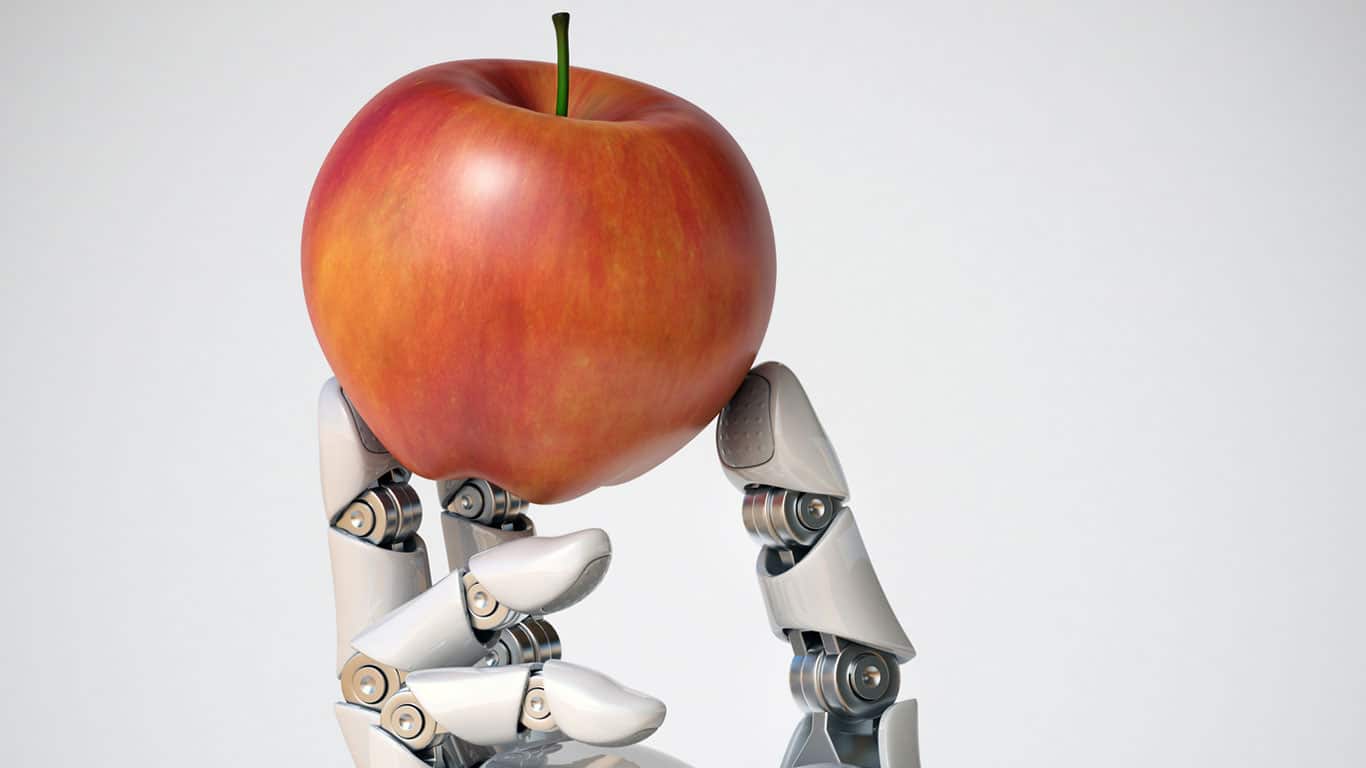Placing Industry 4.0 at the forefront of the digital agenda in all manufacturing industries and thereby increasing competitiveness is a matter of course and clearly also applies to the food and beverage industry. Changing consumer behavior and legal regulations, as well as increasing specialization means new challenges for the industry. Even though many manufacturing plants have already automated their processes, there is still often the need for structural integration of a comprehensive data model. The digital integration of plant-wide processes offers innovative solutions in this vein.
Industry 4.0 is changing the food industry
The breakneck speed of new technological advancements has turned the traditional manufacturing industry on its head in short order. While today, food manufacturing is still handled in a centralized manner, in the future, machines and raw materials will independently organize the manufacturing process and communicate with one another over corporate divisions in a manner akin to social media networks. The four cornerstones of Industry 4.0 – vertical networking of intelligent manufacturing systems, horizontal integration through the coordination of manufacturing and logistics, virtualization and integration along the entire supply chain, exponential technologies – are uncovering new pathways to the manufacturing plant of the future for the food and beverage industry.
Where Industry 4.0 makes an important difference
Product recalls
Food and beverage recalls may become necessary due to consumer complaints or food inspections. The pressure is growing on manufacturers to institute product recalls as quickly as possible. The traceability of contamination is, however, a complicated matter, as several factors such as microbial impurities, labeling and packaging errors, contamination by metals, plastic, glass or potentially dangerous substances such as machine oil or biohazards must be taken into consideration. Therefore, processes must be put into place to identify and eliminate sources of error.
Free E-Book
How Can Food Producers Strategize for Industry 4.0? Learn how to build a foundation that supports change and spurs growth!
Sensor technologies contribute greatly to this effort. There are many varieties of intelligent identification systems which enable better traceability. For instance, radio frequency identification (RFID) labeling tracks crops right from harvesting in order to be able to trace the origins of the cargo. There are also other systems that allow systematic and efficient data tracking from raw material to end product.
Consideration of changing consumer behavior
21st century consumers research their products on their smartphones and often choose them consciously depending on the nutrients they wish to have in their diet. Therefore, to motivate consumers to purchase their products, manufacturers and retailers must choose point-of-sale (POS) solutions which enable them to influence purchase decisions at the retail outlet itself. One example is POS displays that integrate with customers’ mobile devices.
An emerging technology is intelligent labeling. The combination of wireless labeling, software applications and cloud platforms lets consumers scan product labels with their smart phones to ensure the product’s authenticity or to obtain information regarding ratings, customer loyalty programs (such as customer cards) or product videos. It only requires a Near Field Communication (NFC)-enabled device. The data that these intelligent labels provide manufacturers contains demographic information, location, likes, social shares and the exact amount of data retrievals.
Forward-thinking enterprises are also testing strategies such as extending the shelf life of fresh products or minimizing food and packaging waste.
Data management
Optimizing the exchange and collection of data over every machine in the product chain enables not only rapid access to essential data, but also ensures that all steps in the process are safely documented. Data management is the sum of all parts, and for each part, this up-and-coming technology looks to be quite promising. In this way, for instance, cloud computing can help manufacturers provide data related to one or even thousands of products to use for analysis.
Single-unit production
While single-unit production to fill personalized customer orders has been to date extremely difficult to implement, some enterprises are now moving precisely in that direction, thanks to technical innovation. The possibility of automatization and the previously mentioned sensor technologies enable customization according to client requests. A well-known example are granola packages custom-mixed and shipped directly to customers with their own labels.
Where the greatest industry challenges lie
Industry 4.0 will sooner or later change the food and beverage industry. In this way, the market certainly appears to be more than saturated. So manufacturers are facing enormous challenges.
Retaining Clean Labels without compromising taste
The obesity rate has doubled worldwide from 1980 to 2014. The correlation between sweetened grocery items and obesity is well documented. For companies that produce soft drinks, kids’ drinks and protein-based beverages, reducing sugar content will become a greater priority in the near future. The enormous challenge this presents, however, is reducing the amount of sugar while maintaining the sweetness and taste of products. Research and development is currently underway and in full speed ahead to find natural ingredients that preserve the same familiar taste but can be marketed in the form of clean labels to address the needs of health conscious consumers.
Harmonization of legal standards
Food regulations are undergoing constant change. Regardless of the fact that official and internal standards are not always congruent, manufacturers are also facing the challenge of meeting the growing demands of an increasingly better informed customer base. If manufacturers are not able to guarantee stringent supply chains and a robust food safety management system, the risk of subsequent recalls is great. Automated and transparent processes, along with optimized workflows can ensure an efficient data management and improved quality control system.
Increasing specialization
Consumers, meanwhile, are confronted with an oversupply of products. The wide array of choice is overwhelming and leads to reduced willingness to consume, added to the increased desire to purchase organic and healthy products. Food manufacturing companies must develop strategies to stand out from the herd and differentiate themselves from competitors. Food manufacturing companies must find unique selling points that provide a distinctive competitive advantage and add value. That can be anything, ranging from clean labels to environmentally friendly packaging, to authentic marketing of sustainable company values.
Featured Image: © fotolia / koya979




